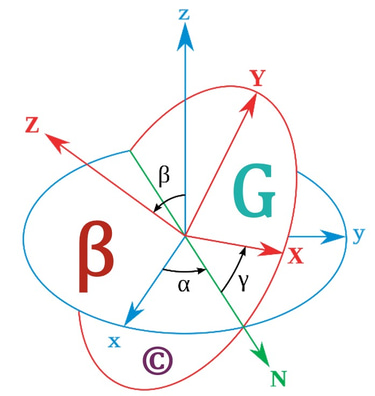The Dangers of DIY Electrical Work: When to Call a Professional
In today’s age of online tutorials and DIY culture, it’s tempting to tackle home improvement projects yourself. While painting walls or assembling furniture can be satisfying and cost-effective, DIY electrical work is a different story. Electrical systems are complex and potentially dangerous, and mistakes can lead to fires, injuries, or even fatalities. This blog will explore the risks of DIY electrical work, highlight common mistakes, and help you understand when it’s time to call a professional.
ELECTRICAL ENGINEERINGPROPERTY AND BUILDINGSPOWER SYSTEMSHEALTH AND SAFETY
Engr. Benjamin V. Gonzales Jr.
3/4/20253 min read
Why DIY Electrical Work is Risky
Electricity is unforgiving. Even a small error can have serious consequences. Here are some of the key dangers of DIY electrical work:
1. Risk of Electrical Shock
Working with live wires or improperly grounded systems can result in severe electrical shocks. These shocks can cause burns, muscle contractions, or even cardiac arrest. In some cases, they can be fatal.
2. Fire Hazards
Faulty wiring, overloaded circuits, or improper connections can overheat and ignite surrounding materials. Electrical fires are one of the leading causes of home fires, and they can spread quickly, causing extensive damage.
3. Code Violations
Electrical work must comply with local building codes and safety standards. DIY projects often fail to meet these requirements, which can lead to fines, failed inspections, or problems when selling your home.
4. Voided Insurance
If an electrical fire or accident occurs due to unpermitted or improperly done DIY work, your homeowner’s insurance may refuse to cover the damages. This can leave you financially responsible for repairs, medical bills, or legal fees.
5. Long-Term Safety Risks
Even if your DIY electrical work seems to function correctly, hidden issues like loose connections or undersized wiring can pose risks months or years later. These problems may go unnoticed until it’s too late.
Common DIY Electrical Mistakes
Many homeowners unknowingly make these mistakes when attempting electrical work:
Overloading Circuits: Plugging too many devices into a single outlet or circuit can cause overheating and fires.
Incorrect Wiring: Reversing hot and neutral wires or failing to ground outlets can create shock hazards.
Using the Wrong Materials: Not all wires, outlets, or breakers are interchangeable. Using the wrong components can lead to malfunctions or fires.
Skipping Permits: Many electrical projects require permits and inspections. Skipping this step can result in unsafe installations and legal issues.
Ignoring Safety Precautions: Failing to turn off the power, use insulated tools, or wear protective gear increases the risk of injury.
When to Call a Professional
While some minor electrical tasks, like replacing a light fixture or installing a smart thermostat, can be done safely by homeowners, most electrical work should be left to licensed electricians. Here are some situations where calling a professional is essential:
1. Installing or Upgrading Electrical Panels
Your electrical panel is the heart of your home’s electrical system. Mistakes here can lead to widespread issues, including power outages or fires. Upgrading to a higher-capacity panel or replacing an old one requires specialized knowledge and tools.
2. Rewiring Your Home
Older homes often have outdated wiring that can’t handle modern electrical demands. Rewiring is a complex job that involves running new wires through walls, ceilings, and floors. It’s not a project for amateurs.
3. Adding New Circuits or Outlets
If you need additional outlets or dedicated circuits for high-wattage appliances, a professional can ensure the job is done safely and up to code.
4. Troubleshooting Persistent Issues
Frequent breaker trips, flickering lights, or buzzing sounds are signs of underlying problems. An electrician can diagnose and fix these issues safely.
5. Working Near Water
Electrical work in kitchens, bathrooms, laundry rooms, or outdoor areas requires GFCI (Ground Fault Circuit Interrupter) protection. Improper installation can lead to shocks or electrocution.
6. Installing Lighting Fixtures or Ceiling Fans
While replacing a light fixture may seem simple, improper installation can lead to loose connections, overheating, or even falling fixtures. Ceiling fans, in particular, require secure mounting to prevent accidents.
7. Dealing with Aluminum Wiring
Homes built in the 1960s and 1970s often have aluminum wiring, which is more prone to overheating and fire hazards than copper. Upgrading or repairing aluminum wiring should only be done by a professional.
The Benefits of Hiring a Professional
Calling a licensed electrician may cost more upfront, but the benefits far outweigh the risks of DIY work:
Safety: Professionals have the training and experience to handle electrical systems safely.
Compliance: Electricians ensure all work meets local codes and standards.
Quality: Properly installed electrical systems are more reliable and durable.
Peace of Mind: Knowing your home is safe and up to code is priceless.
Final Thoughts
While DIY projects can be rewarding, electrical work is not the place to cut corners. The risks of shocks, fires, and code violations are simply too high. By hiring a licensed electrician, you’re investing in the safety and functionality of your home.
If you’re unsure whether a project requires professional help, it’s always better to err on the side of caution. Remember, when it comes to electricity, safety should always come first. Don’t take chances—call a professional and protect your home and loved ones.
By understanding the dangers of DIY electrical work and knowing when to call a professional, you can avoid unnecessary risks and ensure your home remains a safe and comfortable place to live. Stay smart, stay safe, and leave the electrical work to the experts!





